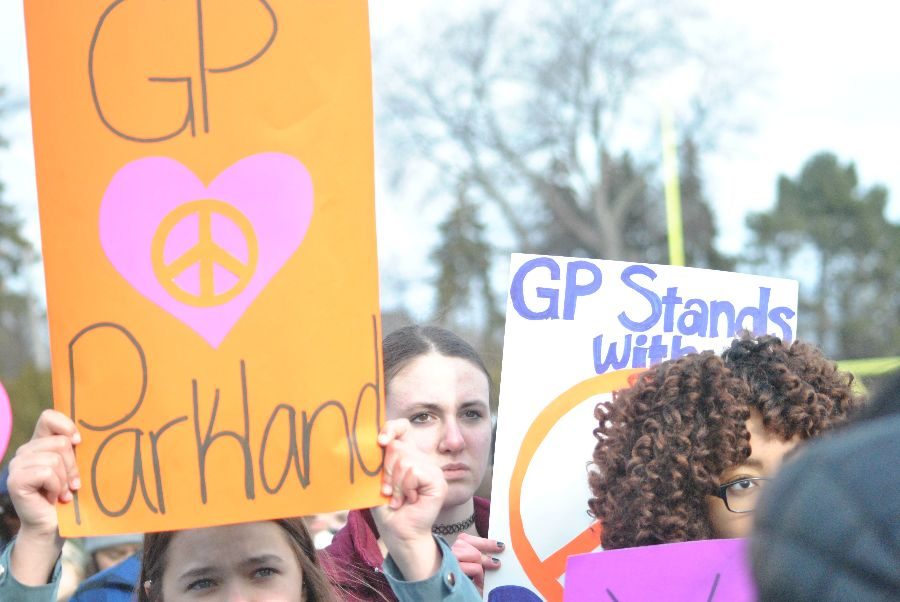Take your shot, America
Photo credit: Emily Widgren
March 15, 2018
On Feb. 14, Florida was rocked. As I write this, I’m in Palm Beach, about 45 minutes north of Marjory Stoneman Douglas High School where countless innocent students and staff were left injured, and 17 more were left dead.
Growing up, Florida has been like a second home to me. A happy place with happy people. But this time, it hasn’t been like it usually is.
People, although their spirits remain kind and genuine, are gray.
The normally full palm-tree-lined streets are desolate.
Sunny South Florida—as of now—is pouring rain.
Nationally, we tend to neglect events like this right after they happen. We observe a moment of silence in our schools, during the day of the event news channels cover nothing but the tragedy and flags are lowered to half-mast.
In Florida, the news channels didn’t stop coverage the next day. Eight days after the shooting, it still dominates Florida’s news. Before I arrived, I won’t deny I had nearly forgotten the tragedy.
But in Florida, the faces of family and friends of the victims are everywhere, their eyes often puffy and reddened.
To them, this is nothing political. This is real.
Never in my lifetime—even after countless tragedies—has the government done anything to move towards increasing public safety. Especially when guns are in the equation.
Among the survivors of the shooting is Emma Gonzalez, a teenager who, despite the odds, has quickly become a leader.
On Feb. 20, 3,000 students, parents and teachers marched on Florida’s capitol in Tallahassee, Gonzalez and other survivors leading them.
“We are going to be the kids you read about in textbooks. Not because we’re going to be another statistic about mass shootings in America, but because, just as David said, we are going to be the last mass shooting,” she said to the crowd of thousands.
I don’t know how many times I’ve heard this past week being in Florida that “these kids are going to make something happen.”
They aren’t, nor am I, asking for a ban on all weapons, but a ban on automatic and semi-automatic weapons.
I’m asking for stricter background checks.
I’m asking that, if something is even just a little bit off about a potential gun owner’s mental state, they undergo a psychological evaluation.
I’m asking that people under the age of 21 have no access to purchasing a weapon of any kind.
I don’t by any means want the Second Amendment repealed. There is no one in government that is actively trying to achieve that.
We, as a country, need to stand up. Gonzalez and many of the other Parkland Massacre survivors have done just that.
Some of our politicians—and those I praise—have fought for measures to be passed in both houses of congress in order to keep the public safe.
Reagan Administration Press Secretary James Brady was shot during the attempted assassination of President Ronald Reagan, and from that moment onward became permanently disabled in March of 1981.
The gunman, John Hinckley Jr., obtained the handgun used in the assassination attempt legally, without background checks.
In February of 1994, the Brady Handgun Prevention Act was passed by Congress. When passing—13 years later and named in memory of Brady—the bill required background checks prior to the purchasing of a firearm.
Today, that bill is still in place and is the bedrock of American firearms legislation.
Evidently, it isn’t enough. However, it shows that our government will take action if that action is pushed for. We all need to push.
Right now, students from Parkland and beyond are pushing. They’re pushing hard.



